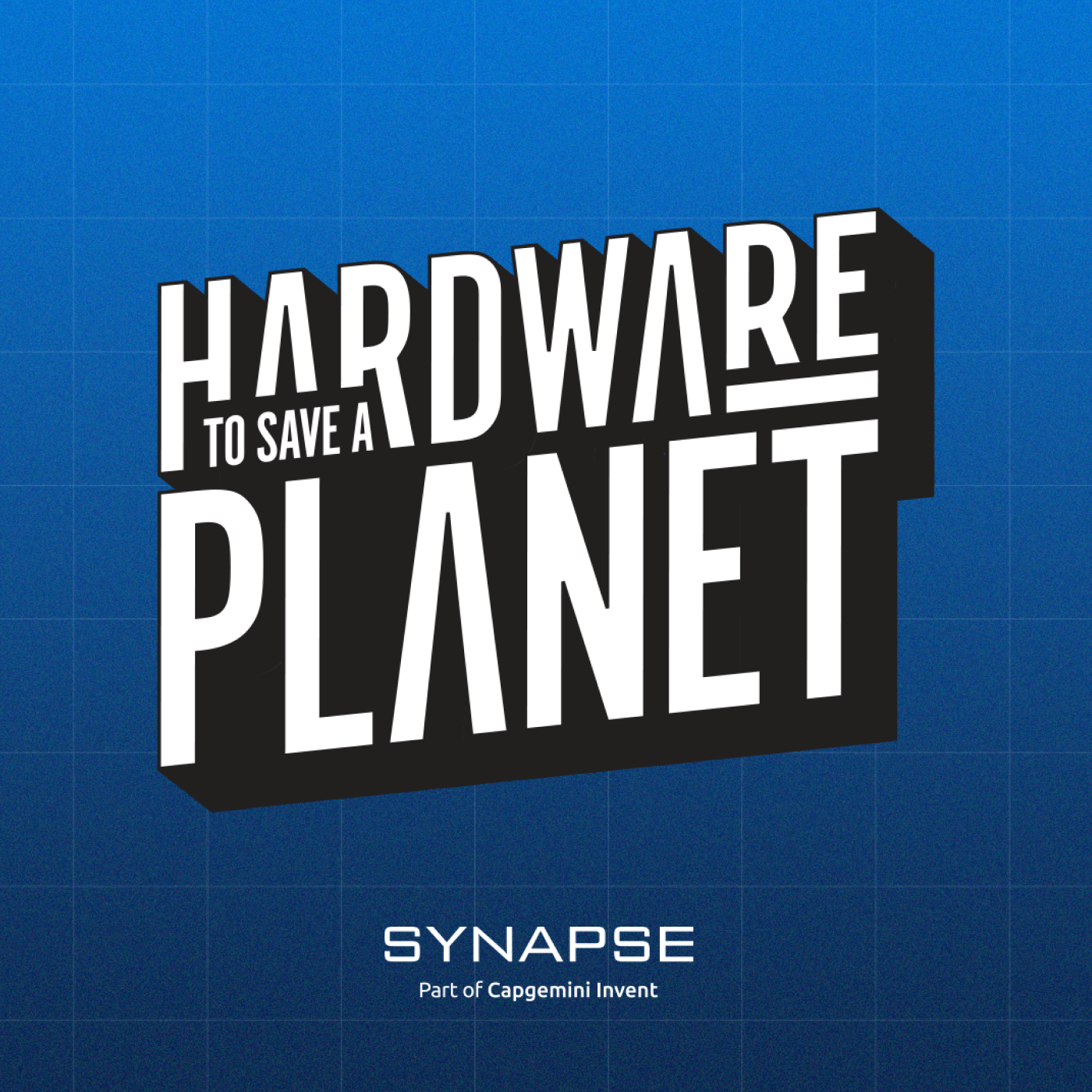Seabound’s Bold Approach to Carbon Capture in Shipping with Alisha Fredriksson
October 24, 2024

“Shipping drives 90% of the world's economy. It's our most efficient way to move things around the world, better than land or air shipping, but it still emits around 3% of global CO2. Because of that, ship owners face growing pressure to reduce greenhouse gas emissions from regulations, customers, and shareholders.” Dylan Garrett
In this episode of Hardware to Save a Planet, Dylan talks to Alisha Fredriksson, Co-Founder and CEO of Seabound. Alisha explains how Seabound’s system, housed in modular shipping containers, helps ship owners reduce CO2 emissions using the latest second-generation carbon capture technology. She shares insights on the challenges shipping lines and owners face, like meeting IMO regulations and the Poseidon Principles while highlighting Seabound’s practical, scalable solution. Alisha also reflects on her journey as a non-technical founder and the importance of curiosity and adaptability in tackling climate tech challenges.
“Shipping drives 90% of the world's economy. It's our most efficient way to move things around the world, better than land or air shipping, but it still emits around 3% of global CO2. Because of that, ship owners face growing pressure to reduce greenhouse gas emissions from regulations, customers, and shareholders.” Dylan Garrett
In this episode of Hardware to Save a Planet, Dylan talks to Alisha Fredriksson, Co-Founder and CEO of Seabound. The company has developed a simpler, more efficient, and cheaper technology to address maritime emissions.
Alisha explains how Seabound’s system, housed in modular shipping containers, helps ship owners reduce CO2 emissions using the latest second-generation carbon capture technology.
Alisha co-founded and leads the team at Seabound. Previously, she helped build the leading maritime electro-fuel startup, Liquid Wind, and managed global partnerships. She has also launched a climate program at Generation, a global non-profit founded by McKinsey & Company. Alisha was in the Founding Class at Minerva University, ranked the world’s most innovative university, and studied at the Mahindra United World College of India, where she founded a social enterprise called Seema.
Episode Resource
- Alisha Fredriksson on LinkedIn
- Seabound Website
- Dylan Garrett on LinkedIn
- Synapse Website
- Hardware to Save a Planet Apple Podcasts
- Hardware to Save a Planet Spotify
Hardware to Save a Planet is handcrafted by our friends over at: fame.so
If you are interested in sponsoring Hardware to Save a Planet, please see our sponsorship offer here.
Previous guests include: Peter Reinhardt of Charm Industrial, Carlos Araque of Quaise, Noah McQueen of Heirloom, Areeb Malik of Glacier, Jeff Satwicz of Bigbelly, Abe Schneider of Natel Energy, Insiya Jafferjee of Shellworks, Paul Gross of Remora, Erika Boeing of Accelerate Wind and Daniel Betts of Blue Frontier.
Check out our three most downloaded episodes:
If you are interested in sponsoring Hardware to Save a Planet, please see our sponsorship offer here.
Previous guests include: Peter Reinhardt of Charm Industrial, Carlos Araque of Quaise, Noah McQueen of Heirloom, Areeb Malik of Glacier, Jeff Satwicz of Bigbelly, Abe Schneider of Natel Energy, Insiya Jafferjee of Shellworks, Paul Gross of Remora, Erika Boeing of Accelerate Wind and Daniel Betts of Blue Frontier.
Check out our three most downloaded episodes:
- Going Big on Clean Energy with Small Fusion Reactors with Robin Langtry, Co-Founder and CEO of Avalanche Energy
- The Role of Energy Storage Systems in Combating Climate Change with Mike Wietecki of Powin and John Thomas of ESS
- Marine Electrification to Reduce Costs and Environmental Damage: A Conversation with Marcelino Alvarez, CEO of Photon Marine
If you have an interesting hardware solution to the climate crisis and would like the opportunity to share this with our audience, please complete this Guest Application form: https://fame.so/syn